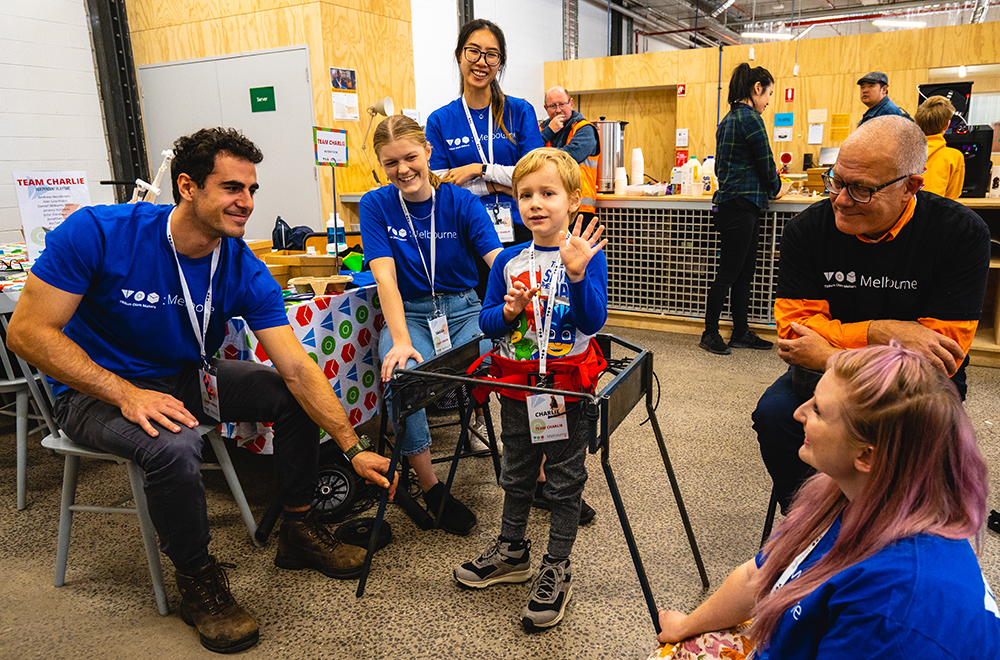The 2021 TOM: Melbourne Makeathon Showcase has just concluded.
The event matched engineers, occupational therapists, designers and those with 3D printing and other expertise, together with people living with disability with a specific challenge, working in teams to design assistive technology that will help to improve the lives of people living with disability.
One was Charlie, a 7-year-old and the first person to be diagnosed with a rare calcium gene mutation of the brain. Over the Makeathon weekend, Charlie stood for the longest time he ever has, without support from his family or carers, using an open-source stabilising solution that will support him to stand up, strengthen his core muscles and promote independent play time.
Another was Leon, a PhD student with spinal muscular atrophy, who applied for the Makeathon with the vision of a solution that would assist him to stabilise and lift his arm. His team created a wheelchair attachment to support his arm while using utensils to gain more independence when eating. Brenton has cerebral palsy and works at a garden centre but had trouble finding protective and accessible gloves. His team developed a product he can use to independently put his gloves on to protect his hands whilst gardening.
Kaspar is a 15-year-old with cerebral palsy, who uses a PODD (Pragmatic Organisation Dynamic Display) book to communicate and share his ideas. His team have designed and built a PODD book holder that connects to his wheelchair, providing him with access to his communication device at all times.
The design file for every product is shared through open-source Digital Product Files, so others can replicate or iterate the design for people with disability in their own communities around the world.
TOM has been running since 2016 in Melbourne, from global organisation Tikkun Olam Makers. The next events will be in Melbourne and then regional areas in Victoria with callouts for more makers and people living with a disability who may be helped.
TOM ambassador, Mary Henley-Collopy said being part of TOM has enhanced her life. “Some disabilities are so specific that there is nothing available to meet the needs. This is where TOM is so clever, bringing brains together to think outside the square.”
Recent prototypes have included robotic arms, powered crutches, wheelchair wheel cleaners and bespoke exercise machines.
The last words go to mechatronics engineer, Vimana Tech CEO, Joel Kuperholz, who said being part of TOM opened up new opportunities. “I have been involved with TOM since the first year when I was studying robotics at university. It has given me lifelong friendships and when I joined it was the first time I had worked in a proper team at university.”

